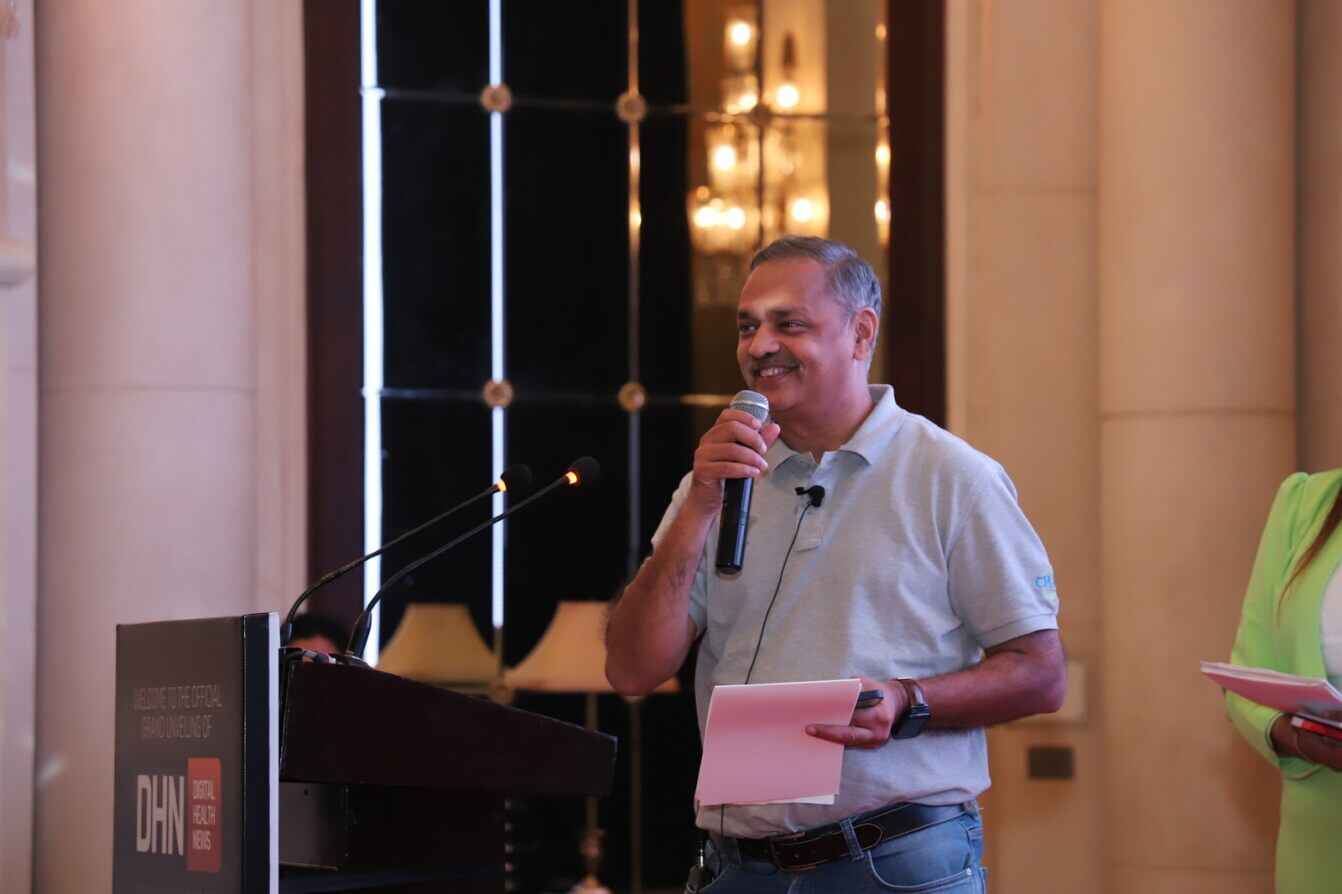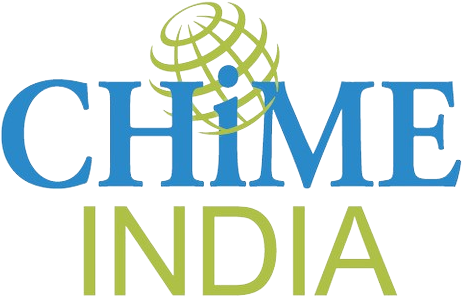Written by : Nikita Saha
November 14, 2023

In a world where healthcare and technology are converging at an unprecedented pace, Girish Koppar, GM-IT, Wockhardt Hospital & CHIME India Board Member, says remote OPDs are extremely important to make healthcare accessible, affordable to the unreached.
In an exclusive chat, Nikita Saha, DHN engages with Koppar, to know how digital technology is proving a catalyst in bringing change, speed and accuracy. Further, Koppar talks on a range of topics spanning from the rise of satellite clinics and remote OPD's to the potential revolution in healthcare delivery.
Join Nikita, as she explores the intersection of healthcare and technology through the lens of a seasoned expert with 28 years of cross-industry experience.
Q. First, Can you provide an overview of the evolution of healthcare technology in India over the last five years? How have you seen it change and grow?
Healthcare IT has been evolving at a rapid pace in the last few years and has actually leapfrogged during the post-COVID era. Technologies including telemedicine, teleconsultation and home care were available but not effectively used, due to a lack of business cases and mindsets of patients and doctors. Since the COVID era, it became a good business case to adopt and embrace these technologies as the movement of patients and doctors was restricted. There was a paradigm shift in the mindset of the healthcare ecosystem post-adoption of such technologies which opened an avenue for the development and implementation of newer technologies. This witnessed the growth of technologies which could be used to cater the patients remotely without coming to the hospital.
Q. Do you think healthcare technology has improved patient care and access to healthcare services in India?
Technology has played a major role in improving patient care and healthcare services have become more accessible than before. A lot of hospitals have started using robots for surgeries, AI is also used in radiology extensively nowadays. EMR adoption has gone up in the last couple of years resulting in capturing clinical data at the micro-level which can be used effectively to predict patient health conditions.
Satellite clinics or remote OPD’s are the new mantra for hospitals who are based in Tier-II cities resulting in reaching out to patients coming from rural areas. Satellite clinics and remote OPD’s are equipped with IOT devices which capture and relay vitals to the command centres located in the corporate hospitals in Tier-I cities.
Q. As a leader in healthcare information management, what technological advancements or innovations do you believe have had the most significant impact on healthcare delivery?
Nowadays hospitals are focussing on the digitisation of clinical and non-clinical data on a micro-level. Non-clinical data is used to generate real-time dashboards such as revenue and occupancy dashboards helping the top management to make key decisions. SCM can automate processes including PO thereby increasing productivity. The marketing department is now able to get more accurate data for their campaigns. Clinical data is used to predict the health condition of a patient. RPA is being used extensively in claim processing and is also being used to automate call centers resulting in the reduction of manpower and an increase in productivity.
Q. What according to you is a major IT challenge that India is facing in adopting digital health solutions?
Though we have seen a lot of benefits coming from using technology, the cost to achieve the same somehow works as a deterrent. Unfortunately, not all hospitals are able to allocate IT budgets as there is a lack of clarity on the ROI and tangible benefits of the investments. Also, there is resistance by doctors and clinicians in the adoption of technology as they do not see a revenue model or a business case.
Q. Data privacy is a serious concern in today’s time. How does Wockhardt Hospital ensure the security and privacy of patient data?
With the increase in digitisation and technologies such as online payments, appointments, etc. the data is more vulnerable than before. Threats can be categorised into internal and external. Internal threats can be managed by proper management of roles and rights which will ensure that the right person sees the data, having a robust password policy and educating the public on the privacy and security of data. External threats can be neutralised by setting up a Wall and real-time monitoring of threats.
Q. How do you see the future of IT in healthcare from a global perspective?
Healthcare is now taken more seriously by the government authorities globally since the post COVID era resulting in the increase in budget allocation. Also, there is a lot of work done on creating a HIE (Health Information Exchange) which can help in data exchange across hospitals and ease claim processing. A lot of start-ups have mushroomed in the last few years that are using AI, ML & IOT technologies which can be easily integrated with core HIS applications and increase productivity and revenue.
Q. With the installation of Mako Systems in 35 countries and over a million procedures performed, can you share some insights into the global impact and acceptance of this technology in the field of joint replacement surgery?
Mako Systems are the pioneers in Robotic Surgery and have had a great impact on the way surgeries are performed. The equipment not only helps to do the surgery with great precision but also helps and guides the surgeon during the surgery. This helps in reducing the fatigue of the surgeon, increases accuracy & productivity and is widely accepted by the patients across the globe. In the future, one can expect an increase in adoption of technology to drive surgeries and investigations in specialities other than orthopaedics.
Q. Apart from the Stryker Mako Robot technology, are there any other recent developments or innovations at Wockhardt Hospitals that you would like to highlight?
Wockhardt Hospitals has recently initiated Robotic Surgery and has seen a great response from the patients. Apart from this initiative, we are also focussing on the digitisation of data which is helping us to create various real-time dashboards helping the top management to take key decisions. We are also focussing on the engagement of patients by creating various bots and mobile apps.
Q. Lastly, can you please tell us about the role of organisations like CHIME in shaping the future of healthcare IT, and what value they bring to the healthcare industry?
CHIME India is a subset of CHIME Central based out of the USA. The organisation focuses on grooming the Healthcare CIOs and also has a certification program CHCIO (CHIME Certified CIO). A CHCIO-certified professional is highly respected in the Healthcare IT community. CHIME India also partners with companies that have products/applications that make a difference to the healthcare ecosystem.
CHIME India also has tremendous support from Apollo Hospitals and we conduct joint annual events on a pan-India level. The event is attended by clinical and technologists across India and international speakers of great repute are invited to share their thoughts via various panel discussions.
CHIME India also collaborates with various government agencies for educational webinars. Recently we participated in a discussion on Cyber Security with DSCI and another deliberation we had with NHA on ABDM rollout.
The College of Healthcare Information Management Executives (CHIME) is an executive organization dedicated to serving senior digital health leaders. CHIME includes more than 5,000 members in 56 countries and two US territories and partners with over 150 healthcare IT businesses and professional services firms. CHIME enables its members and business partners to collaborate, exchange ideas, develop professionally and advocate the effective use of information management to improve the health and care throughout the communities they serve. CHIME's members are chief information officers (CIOs), chief medical information officers (CMIOs), chief nursing information officers (CNIOs), chief innovation officers (CIOs), chief digital officers (CDOs), and other senior healthcare leaders. The CHIME India Chapter became the first international chapter outside North America in 2016 and is now a community of over 70+ members in India. For more information, please visit www.chimecentral.org
